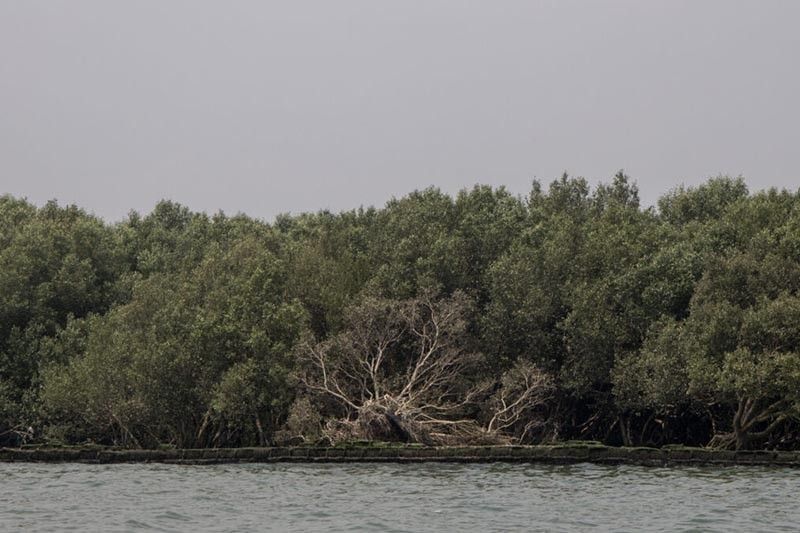Creation of coastal greenbelt zones sought to protect coastal folk

MANILA, Philippines — The country needs to bolster the defenses of coastal communities against strong cyclones and storm surges by building coastal greenbelt zones, an ocean protection group and a marine scientist said.
In a release Friday, Oceana Philippines and marine scientist Jurgenne Primavera called for a legislation that would create coastal greenbelt zones composed of mangroves and beach forest areas to protect coastal communities from the severe impacts of climate change.
Destructive typhoons like "Yolanda" (Haiyan) and "Odette" (Rai) highlight the need for such coastal defenses, they stressed.
“We have seen the strongest typhoons and storm surges hitting coastal villages and leaving us with numerous deaths and losses in property,” said Primavera, who is the chief mangrove scientific advisor of the Zoological Society of London.
“The solution is simple. Reducing or absorbing the wave energy from storm surges depends on physical factors—distance traveled by waves, water depth; and especially biological factors comprising the greenbelt of mangroves and beach trees—their size, shape, height, density, etc.,” she explained.
A 2012 study suggested that a 100-meter wide mangrove area can reduce 13% to 66% of energy from wind waves and swell waves.
During the onslaught of Odette, mangrove forests in Del Carmen, Siargao were able to protect coastal communities from the wrath of the strongest cyclone that hit the country in 2021, the town’s mayor said.
'Greenbelts, not reclamation'
Sens. Nancy Binay and Risa Hontiveros filed bills seeking to establish a national coastal greenbelt program and create a greenbelt management action plan. The bills remain pending at the upper house’s environment, natural resources and climate change committee.
Similar bills filed by Reps. Argel Joseph Cabatbat (Magsasaka party-list), Alfredo Garbin (Ako Bicol party-list) and Rufus Rodriguez (Cagayan de Oro City) are also pending at the lower chamber’s committee on climate change.
Oceana Philippines Vice President Gloria Estenzo-Ramos stressed the development and implementation of programs for coastal greenbelt should be interrelated with disaster risk reduction mechanisms “that will enhance the people’s adaptive capacity to be able to rise up amid the challenges posed by the climate crisis.”
Estenzo-Ramos also criticized the government’s propensity for dump-and-fill projects that destroy the country’s once-rich mangrove forests.
“We live in an archipelago with one of the longest coastlines that are also the pathway of typhoons and storm surges, yet the government favored the so-called development projects in exchange for coastal defense provided by mangroves and beach forest areas which had been decimated as a result,” she added.
In Manila Bay, the remaining mangrove forests and mudflats are being threatened by at least 23 reclamation projects, including the massive airport project in Bulacan, covering approximately 25,000 hectares of the coast from Bataan to Cavite.
- Latest




























